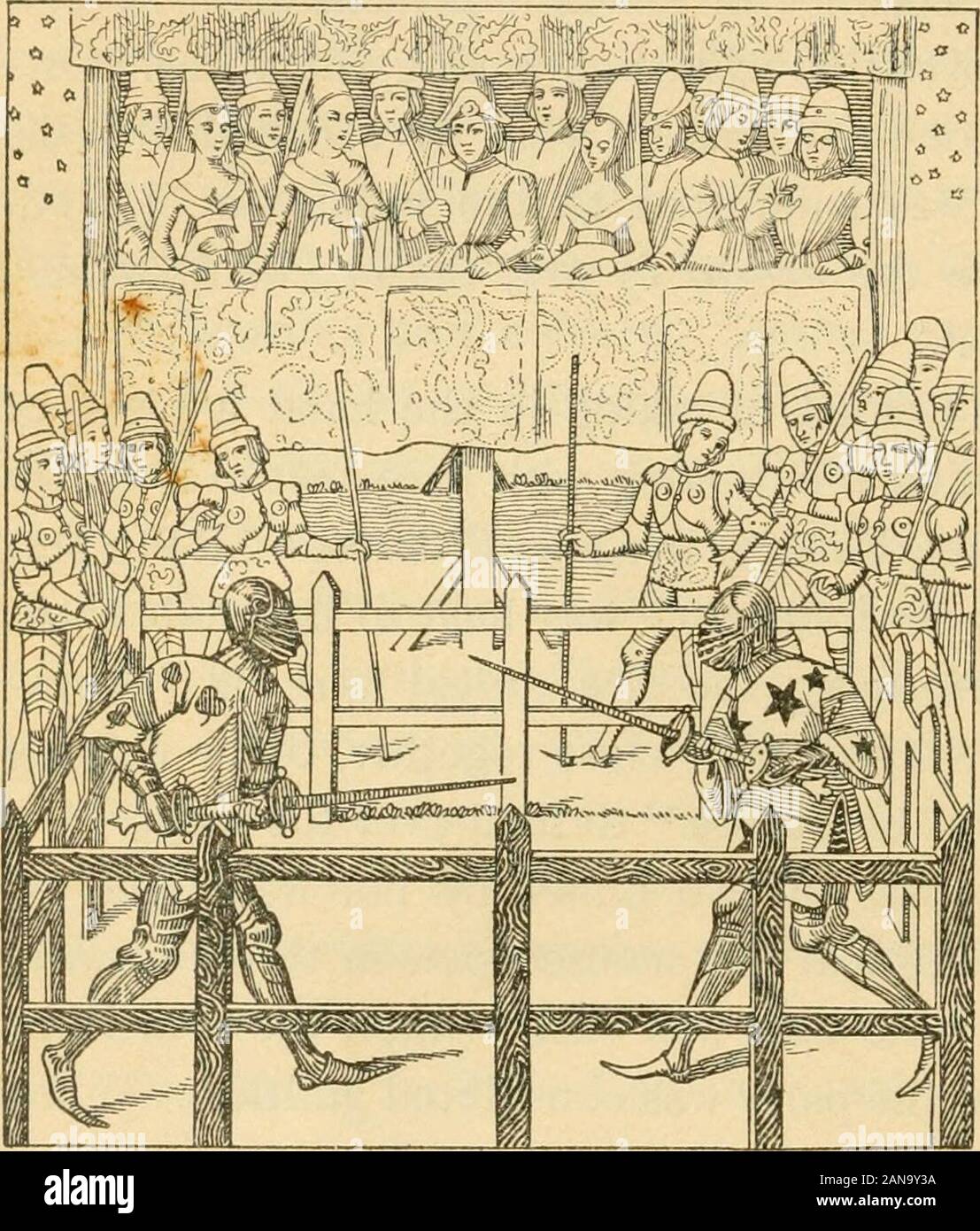Mediaeval and modern history . f Heaven, it rested on the same principle as the trialsby fire and water, and consequently is properly given a place among the ordeals. 33 THE FUSION OF LATIN AND TEUTON The trial by co??ibat, or wager of battle^ was a solemn judicialduel. It was resorted to in the belief that God would give vic-tory to the right. One circumstance that caused this form of theordeal to be often invoked was the misuse of the kind of trialknown as compurgation, or the wager of law? This allowed aperson accused of a crime to clear himself by simply swearingthat he was innocent, provi

Image details
Contributor:
The Reading Room / Alamy Stock PhotoImage ID:
2AN9Y3AFile size:
7.1 MB (517.2 KB Compressed download)Releases:
Model - no | Property - noDo I need a release?Dimensions:
1459 x 1712 px | 24.7 x 29 cm | 9.7 x 11.4 inches | 150dpiMore information:
This image is a public domain image, which means either that copyright has expired in the image or the copyright holder has waived their copyright. Alamy charges you a fee for access to the high resolution copy of the image.
This image could have imperfections as it’s either historical or reportage.
Mediaeval and modern history . f Heaven, it rested on the same principle as the trialsby fire and water, and consequently is properly given a place among the ordeals. 33 THE FUSION OF LATIN AND TEUTON The trial by co??ibat, or wager of battle^ was a solemn judicialduel. It was resorted to in the belief that God would give vic-tory to the right. One circumstance that caused this form of theordeal to be often invoked was the misuse of the kind of trialknown as compurgation, or the wager of law? This allowed aperson accused of a crime to clear himself by simply swearingthat he was innocent, provided he could get a sufficient number of his relatives orneighbors to swearthat he was tellingthe truth.^ The num-ber of concurring wit-nesses was depend-ent upon the serious-ness of the charge orthe rank of the per-son making the oath.Now, this privilegewas liable to abuse, and the only resortleft to the injuredperson in such casewas to challenge theperjurer to submit tothe judgment of Godas it should be pro-nounced in a solemn. Fig. 8.—Trial by Combat. (From a manuscriptof the fifteenth century ; after Lacroix) judicial combat. This form of trial grew into great favor.Naturally it was a favorite mode of trial among a people whofound their chief delight in fighting. Even the judge in somecases resorted to it to maintain the authority and dignity of hiscourt. To a person who had disregarded a summons the judge 2 The wager of law is not to be reckoned among the ordeals, as it lacked theessential element of an ordeal, namely, the appeal to the judgment of Heaven. 3 In course of time this form of the oath was changed, so that the compurgators, as the witnesses were called, simply swore that they believed the oath of the accusedto be true and clean. ORDEALS 39 would send a challenge in this form : I sent for thee, and thoudidst not think it worth thy while to come; I demand thereforesatisfaction for this thy contempt. Religious disputes also weresometimes settled by this sort of mar